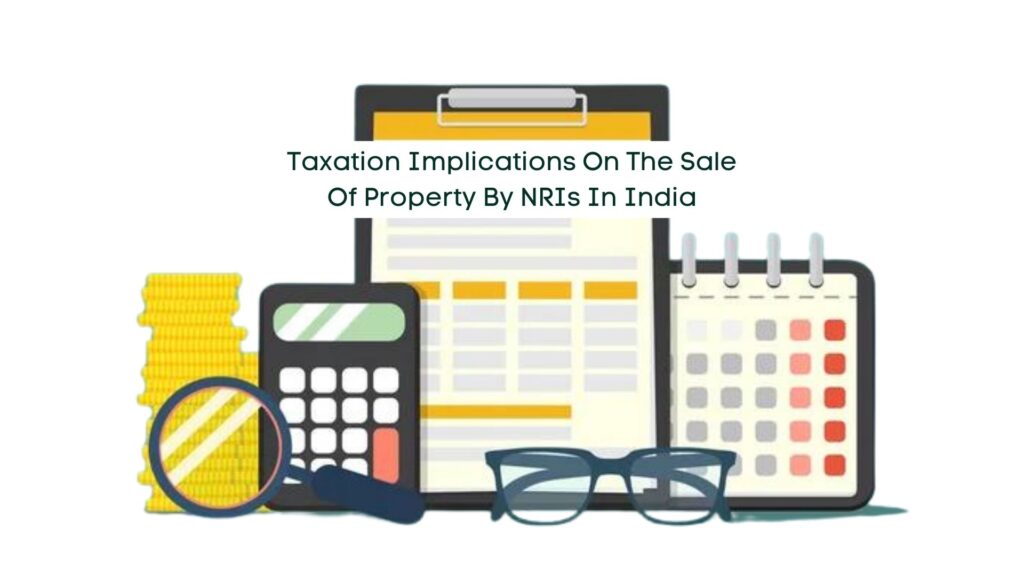
26 Feb Taxation Implications on the Sale of Property by NRIs in India

NRIs, or Non-Resident Indians, were individuals who had ties to India but had settled abroad. Many NRIs had investments in properties in India, either purchased or inherited. They sometimes opted to sell these properties located in India. In this article, we will explore the taxation implications on the sale of property by NRIs in India, including the various obligations applicable to both sellers and buyers.
Tax Implications on Sale of NRI Property
Any sale of property incurred tax liabilities. The tax rates depended on the duration of holding the asset, determining whether it was classified as a Long Term or Short Term Asset.
- Long Term Asset: Properties held for over 2 years were categorized as Long Term Assets. The sale of such assets incurred a tax rate of 20%. Sellers could claim indexation benefits on the acquisition cost, which included the original owner's acquisition cost in case of inheritance.
- Short Term Asset: Properties held for less than 2 years were deemed Short Term Capital Assets, and their sale incurred taxes at normal rates applicable to the assessee.
Sale Value of Property:
- Less Than 50 lakhs: LTCG Tax 20%, (+) Surcharge Nil, (+) Health and Edu. Cess 4% of above, Effective TDS Rate 20.80%
- 50 lakhs to 1 crore: LTCG Tax 20%, (+) Surcharge 10% of tax, (+) Health and Edu. Cess 4% of above, Effective TDS Rate 22.88%
- More than 1 crores: LTCG Tax 20%, (+) Surcharge 15% of tax, (+) Health and Edu. Cess 4% of above, Effective TDS Rate 23.92%
- 1 crore to 2 crores: LTCG Tax 20%, (+) Surcharge 25% of tax, (+) Health and Edu. Cess 4% of above, Effective TDS Rate 26%
- Above 2 crores: LTCG Tax 20%, (+) Surcharge 37% of tax, (+) Health and Edu. Cess 4% of above, Effective TDS Rate 28.496%
Other Important Considerations
Several other important points regarding TDS on NRI property sales were as follows:
- TDS deductions were mandatory even for advance payments made to NRI sellers.
- Buyers were required to obtain a Tax Deduction Account Number (TAN) compulsorily for these transactions.
- There was no threshold limit for TDS deductions in purchases from NRIs, meaning TDS was applicable regardless of the property value.
Option for Lower TDS Deduction
Sellers had the option to seek a lower tax deduction certificate from income tax authorities to avoid potential issues arising from excess tax deductions. The procedure for obtaining this certificate involved online application submission through the TDS-TRACES portal, along with relevant documents such as sale agreements and capital gain calculations.
Exemptions under the Income Tax Act
NRIs could also avail exemptions under the Income Tax Act, including:
- Capital gain exemptions by investing in specified bonds or another residential property.
- Conditions applied to the timing and nature of investments for these exemptions.
Conclusion
In conclusion, this article has delved into the tax implications of selling property for NRIs in India. While the tax provisions aim to secure the tax amount at the time of transaction, the provision for obtaining a lower tax deduction certificate offers relief to sellers. Additionally, compliance with regulations from authorities such as FEMA and RBI regarding forex transactions is crucial for NRIs.


No Comments